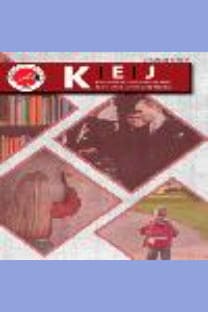Beden Eğitimi Öğretmenlerinin Tükenmişlik Düzeylerinin Saptanması ve Karşılaştırılması
Beden eğitimi öğretmeni, tükenmişlik, duygusal tükenme, duyarsızlaşma, kişisel başarı
Determination and Comparison Of Physical Education Teachers’ Burnout Levels
Physical education teacher, burnout, emotional exhaustion, depersonalization, personal accomplishment,
___
- Aslan, S.H., Gürkan, S.B., Alparslan, Z.N. ve Ünal, M. (1996). Tıpta uzmanlık öğrencisi hekimler- de tükenme düzeyleri. Türk Psikiyatri Dergisi, 7 (1), 39-45.
- Avşaroğlu, S., Deniz, M.E. ve Kahraman, A. (2005). Teknik öğretmenlerde yaşam doyumu iş do- yumu ve mesleki tükenmişlik düzeylerinin incelenmesi. Selçuk Üniversitesi Sosyal Bilimler Enstitüsü Dergisi, (14), 115-129.
- Baykoçak, C. (2002). “Beden Eğitimi Öğretmenlerinin Mesleki Sorunları ve Tükenmişlik Düzey- leri (Bursa ili uygulaması).” Yayımlanmamış yüksek lisans tezi, Sakarya Üniversitesi Sosyal Bilimler Enstitüsü, Sakarya.
- Baysal, A. (1995). “Lise ve Dengi Okul Öğretmenlerinde Tükenmişliğe Etki Eden Faktörler.” Ya- yımlanmamış doktora tezi. Dokuz Eylül Üniversitesi Sosyal Bilimler Enstitüsü, İzmir.
- Cheuk, W.H. & Sai, W.K. (1995). Stress, social support, and teacher burnout in Macau. Current Psychology, 14 (1), 42-46.
- Çam, O. (24-26 Haziran 1992). Hemşirelerin Tükenmişlik Düzeyleri ve Tükenmişliği Etkileyen Bazı Etmenlerin İncelenmesi. III. Ulusal Hemşirelik Kongresinde sunulmuş bildiri, Sivas.
- Ergin, C. (1992). Doktor ve Hemşirelerde Tükenmişlik ve Maslach Tükenmişlik Ölçeğinin Uygulanma- sı. VII. Ulusal Psikoloji Kongresi Bilimsel Çalışmaları. Ankara: Türk Psikologlar Derneği Yayını.
- Girgin, G. (1995). “İlkokul Öğretmenlerinde Meslekten Tükenmişliğin Gelişimini Etkileyen Değiş- kenlerin Analizi ve Bir Model Önerisi.” Yayımlanmamış doktora tezi. Dokuz Eylül Üniversitesi Sosyal Bilimler Enstitüsü, İzmir.
- Girgin, G. ve Baysal A. (2005). Tükenmişlik sendromuna bir örnek: Zihinsel engelli öğrencilere eğitim veren öğretmenlerin mesleki tükenmişlik düzeyi. TSK Koruyucu Hekimlik Bülteni, 4 (4), 172-187.
- Gündüz, B. (2005). İlköğretim öğretmenlerinde tükenmişlik. Mersin Üniversitesi Eğitim Fakültesi Dergisi, 1(1), 152-166.
- Hamman, D.L. & Gordon, D.G. (2000). Burnout: An occupational hazard. Music Educators Jour- nal, 87 (3), 34-39.
- Kokkinos, C.M. (2007). Job stressors, personality and burnout in primary school teachers..British Journal of Educational Psychology, 77 (1), 229-243.
- Koustelios, A. (2003). Burnout among physical education teachers in Greece. International Journal of Physical Education, 40(1), 32–8.
- Koustelios, A. & Tsigilis, N. (2005). The relationship between burnout and job satisfaction among physical education teachers: A multivariate approach. European Physical Education Review, 11 (2), 189- 203.
- Leung, P.Y.D. & Lee, S.W.W. (2006). Predicting intention to quit among Chinese teacher: Differen- tial predictability of the components of burnout. Anxiety, Stress, and Coping, 19 (2), 129-141.
- Maslach, C. & Jackson, S.E. (1981). The measurement of experienced burnout. Journal of Occu- pational Behavior, 2, 99- 113.
- Maslach, C., Schaufeli, B.W. & Leiter, P.M. (2001). Job burnout. Annual Reviews Pscyhology, 52, 397- 422.
- Mearns, J. & Cain, E.J. (2003). Relationships between teachers’ occupational stress and their bur- nout and distress: Roles of coping and negative mood regulation expectancies. Anxiety, Stres, and Coping, 16 (1), 71-82.
- Ozdemir, S. (2006). Burnout levels of teachers of students with AD/HD in Turkey: Comparison with teachers of non-AD/HD students. Education and Treatment of Children, 29 (4), 693-709.
- Örmen, U. (1993). “Tükenmişlik Duygusu ve Yöneticiler Üzerine Bir Uygulama.” Yayımlanma- mış yüksek lisans tezi, Marmara Üniversitesi Sosyal Bilimler Enstitüsü, İstanbul.
- Schwarzer, R., Schmitz, G.S. & Tang, C. (2000). Teacher burnout in Hong Kong and Germany: A cross- cultural validation of the Maslach Burnout Inventory. Anxiety, Stress and Coping, 13, 309-326.
- Sears, S.F., Jr. Urizar, G.G. & Jr. Evans, G.D. (2000). Examining a stress-coping model of burnout and depression in extension agents. Journal of Occupational Health Psychology, 5(1), 56-62.
- Smith, D. & Leng, G.W. (2003). The prevalence and sources of burnout in Singapore secondary school physical education teachers. Journal of Teaching in Physical Education, 22(2), 203–18.
- Talmor, R., Reiter, S. & Feigin, N. (2005). Factors relating to regular education teacher burnout in inclusive education. European Journal of Special Needs Education, 20 (2), 215-229.
- Torun, A. (1996). Stres ve Tükenmişlik, S. Tevrüz (Ed.) Endüstri ve Örgüt Psikolojisi (ss.43-53). Ankara: Türk Psikologlar Derneği Yayını.
- Tuğrul, B ve Çelik, E. (2002). Normal çocuklarla çalışan anaokulu öğretmenlerinde tükenmişlik. Pamukkale Üniversitesi Eğitim Fakültesi Dergisi, 2 (12), 1-11.
- ISSN: 1300-8811
- Yayın Aralığı: Yılda 4 Sayı
- Başlangıç: 1992
- Yayıncı: -
Argümantasyon Destekli Öğretimin Öğrencilerin Kavramsal Anlama ve Tartışma İstekliliklerine Etkisi
Yükseköğretim Ders Kitaplarında Nitelik: Eğitim Bilimleri Alanındaki Kitaplara İlişkin Bir İnceleme
Enes GÖK, Cemalettin İPEK, Ali Faruk YAYLACI, Adem BELDAĞ
Üniversitelerde Kurumsal Değerlendirme Çalışmalarına Öğretim Üyelerinin Katılımı
Zeynep Bumin SÜZEN, Temel ÇALIK
Dijital Teknolojiye Yönelik Tutum Ölçeği
Beden Eğitimi Öğretmenlerinin Tükenmişlik Düzeylerinin Saptanması ve Karşılaştırılması
Ali Haydar KELGÖKMEN, Fatma Saçlı UZUNÖZ, Gıyasettin DEMİRHAN
Fen Bilimleri Öğretmenlerinin Bilimin Doğasına İlişkin Görüşleri: Bilişsel Harita Örneği
Ali GÖKMEN, Ayfer BUDAK, Erhan ERTEKİN
Erken Çocukluk Döneminde Çocuk-Ebeveyn Birlikte Okuma Etkinliklerinin İncelenmesi
